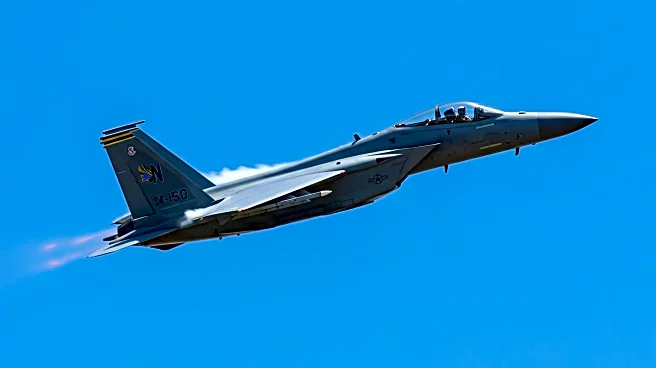What's Happening?
Taiwan's cabinet has announced plans to increase defense spending to T$949.5 billion ($31.27 billion) in 2026, surpassing 3% of its GDP for the first time since 2009. This decision comes amid growing military and political pressure from China, which claims Taiwan as its territory. The budget includes funding for veterans, special projects, and the coast guard, marking the first time coast guard spending is included in the defense budget. Taiwan's government has prioritized military modernization, including developing domestically made submarines, in response to China's increased military activities near Taiwan.
Why It's Important?
Taiwan's decision to boost defense spending reflects its strategic response to China's escalating military presence and pressure. By allocating more resources to defense, Taiwan aims to strengthen its military capabilities and ensure its security amid regional tensions. This move aligns with U.S. expectations for increased defense spending among its allies, potentially enhancing Taiwan's defense cooperation with the United States. The inclusion of coast guard spending highlights Taiwan's focus on maritime security, crucial for countering China's activities in the region.
What's Next?
Taiwan's increased defense budget may lead to further military modernization efforts, including advancements in naval capabilities and defense systems. The cabinet is expected to announce detailed budget plans, which could influence Taiwan's defense strategy and its relations with international allies. China's response to Taiwan's defense spending could impact regional stability and diplomatic relations, potentially leading to increased military activities or negotiations.
Beyond the Headlines
The decision to include coast guard spending in the defense budget underscores Taiwan's emphasis on maritime security, reflecting broader geopolitical concerns in the Asia-Pacific region. This shift may influence Taiwan's defense policies and its approach to regional security challenges, including territorial disputes and maritime sovereignty issues.









